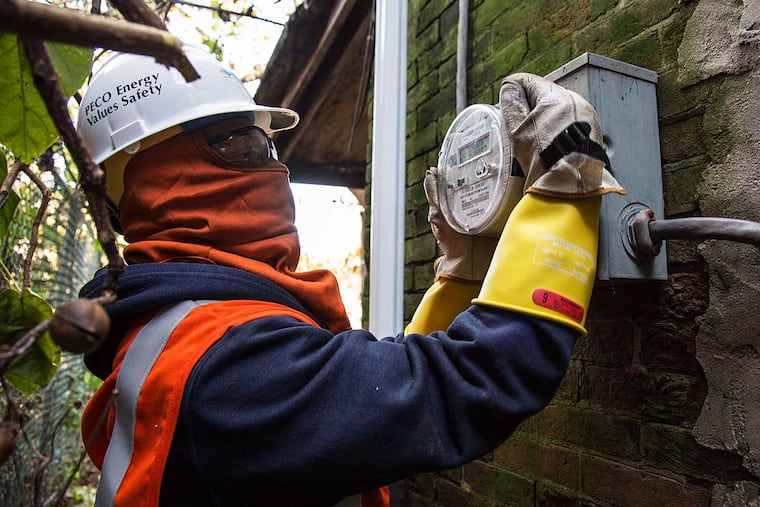N.J. approves $700 million PSE&G plan to roll out smart meters
N.J. says wireless digital meters can improve outage responses, integrate more renewable energy and allow customers to better manage their energy spending.

Public Service Electric and Gas Co. received approval Thursday to spend $700 million over four years to roll out smart meters for its 2.3 million customers, vaulting New Jersey’s largest utility into an modern age that it says will be more energy efficient and eco-friendly.
The New Jersey Board of Public Utilities approved the utility’s plans to install the digital wireless devices, which allow for two-way communication between customers and the utility’s network. The gadgets provide real-time meter readings and improved outage management. They also allow utilities to shut off or turn on a customer’s power with the flip of a switch at a central utility station.
“This is a vital step toward achieving a smarter and cleaner energy future for New Jersey,” PSE&G president Dave Daly said in a statement.
New Jersey has been slower than other states to adopt smart meters, which are already in place in more than 90 million homes nationwide and in most homes in Pennsylvania under a 2008 energy-conservation law mandating their use. New Jersey last year lifted a two-year moratorium on utilities adopting advanced metering infrastructure, which environmental advocates had argued is necessary to integrate more renewable energy into the system.
But smart meters also have generated objections in Pennsylvania and other states from a small but vocal group of customers, who maintain that the wireless devices emit radio frequencies that cause ill health. Smart meters use radio technology similar to that of cellular telephones.
The industry says that the devices are safe and that the health claims are unfounded. But a Pennsylvania appeals court last year invalidated a 2008 law that requires electric utilities to install the devices on all homes and businesses, saying that customers should have the right to opt out. That ruling is under appeal.
PSE&G customers can opt out from having a smart meter installed, but at a cost: They will incur a $12 monthly fee. A residential customer who opts out after a meter is installed will incur a $45 meter change-out fee as well as a $12 monthly fee, the company said.
The utility plans to install 80,000 meters this year, 300,000 next year and 900,000 in each of the following two years. PSE&G will pay for the smart meters by increasing customer rates, though the impact on individual bills is unclear.
The roll-out of smart meters will also eliminate the jobs of an 307 full-time and 51 part-time meter-readers, but PSE&G says it “will provide opportunities for all affected employees to remain with the company,” said Lauren Ugorji, a spokeswoman.
PSE&G would be the second New Jersey utility to install smart meters, following Rockland Electric, which already deployed the devices to its 66,000 customers. Smart-meter proposals by two other utilities, Jersey Central Power & Light and Atlantic City Electric, are pending before the state.
PSE&G says that smart meters are the foundation of its Energy Cloud network, which it says will connect homes and businesses with clean energy sources and services, using data to help customers to customize their energy use.
One of the chief selling points is that smart meters provide for time-of-use billing, which allows customers to receive discounts for using electricity during off-peak hours. Hourly pricing might encourage the greater adoption of electric vehicles that can be charged overnight at a lower cost. The smart meters can also work with systems such as Amazon’s Alexa to give customers the ability to better manage their energy spending.
But in practice in other states, utilities have been slow to roll out time-of-use rates, and customers have been slow to adopt them.
This article was updated to include the numbers of meter-readers whose jobs would be eliminated.